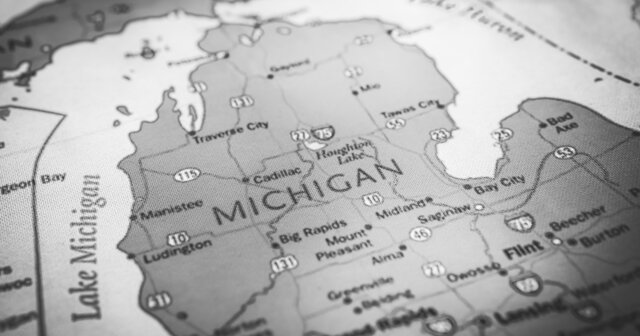

This article originally appeared in The Detroit News August 21 2024.
Moving to Michigan more than a decade ago, I noticed that people love the shape of this state. Nowhere else have I seen such a profusion of state-themed bumper stickers, decals and clothing. Not only that — Michigan has the "hand thing."
I mentioned this Michigan love to a coworker. “Well, yeah!” she said. “Who wants to run around with a big square on their shirt?”
States are major actors in the governance of the country. We overlook this because national stories dominate news coverage. But governors and state Legislatures make decisions that affect tens of millions of people. States do more and move faster, in a policy sense, than the federal government does. An issue that gets attention in Washington, D.C., is often there after percolating in the states.
America’s founders intended for the states to have considerable authority. The 10th Amendment of the U.S. Constitution says any powers not given to the federal government are reserved to the states.
It’s called federalism.
My friends at the State Policy Network’s Center for Practical Federalism define federalism as “a system of government where some authority belongs to the national government, and much more resides with states, communities and the American people.”
The Center for Practical Federalism has designed a scorecard — the first of its kind I have seen — to measure federalism in the states. Federalism is good, says Tony Woodlief, a co-author of the scorecard, because it increases the influence you as an individual have over the actions of government.
“Political decisions tend to be better, more democratic, and more easily adjusted the closer they’re made to the people who live under them,” said Woodlief.
Woodlief’s federalism scorecard looks at 20 variables, such as legislative oversight committees, emergency powers and how a state handles federal grants. The ranking shows which states are most vulnerable to federal overreach.
Michigan is in the top half — 21 out of 50 — which means our state is less vulnerable to federal pressure and influence. Of the Great Lakes States, we rank lower than Wisconsin (#2), Minnesota (#9), New York (#13) and Ohio (#14). But we rank higher than Indiana (#39), Illinois (#41) and Pennsylvania (#42).
This ranking is not a simple sorting of red states and blue states. Of the top 10 states, five have Republican controlled legislatures and five have Democratic controlled legislatures. Of the candidates running for the White House, Tim Walz’ Minnesota ranks higher than former President Donald Trump’s New York, which is one ahead of JD Vance’s Ohio. Kamala Harris’ California comes in well behind the others.
Regardless of party affiliation, state policymakers should care about federalism and look to protect their proper sphere of authority. There are some things the federal government should do. There are more things the states should do.
Former Michigan lawmaker Steve Johnson works with the Center for Practical Federalism. I asked him what Michigan could do to improve its federalism score. He recommended that we empower people to challenge unconstitutional agency actions. He also recommends a more robust legislative review of agency regulations. And as the former chair of an oversight committee, he said the Legislature should hold more oversight hearings, which provide accountability for government actions.
Johnson also pointed to a law Tennessee passed this year: the state department of education must disclose to state lawmakers all guidance that the federal government sends down. Federal agencies often issue “Dear Colleague” letters to state agencies, which are non-binding but can still influence state administrative decisions.
Michigan residents cherish our state’s unique shape. We should be just as protective of our ability to govern matters close to home.
Permission to reprint this blog post in whole or in part is hereby granted, provided that the author (or authors) and the Mackinac Center for Public Policy are properly cited.
Get insightful commentary and the most reliable research on Michigan issues sent straight to your inbox.

The Mackinac Center for Public Policy is a nonprofit research and educational institute that advances the principles of free markets and limited government. Through our research and education programs, we challenge government overreach and advocate for a free-market approach to public policy that frees people to realize their potential and dreams.
Please consider contributing to our work to advance a freer and more prosperous state.

Donate | About | Blog | Pressroom | Publications | Careers | Site Map | Email Signup | Contact